What is postpartum thyroiditis?
Postpartum thyroiditis is inflammation of the thyroid gland, the butterfly-shaped gland in the front of your neck that regulates your metabolism and other bodily functions. It is an autoimmune condition that occurs when antibodies produced by your immune system attack your thyroid.
The thyroid is like the body’s thermostat, helping to regulate your temperature. It also helps the body use energy and regulates the function of your heart, brain, muscles and other organs. Postpartum thyroiditis disrupts thyroid function and can cause either hypothyroidism (an underactive thyroid) or hyperthyroidism (an overactive thyroid).
How common is postpartum thyroiditis?
Postpartum thyroiditis develops within the first year after childbirth and affects about 5 to 10% of women in the US. In rare cases, it can also develop after a miscarriage.
Postpartum thyroiditis symptoms
When your thyroid becomes inflamed, it releases excess thyroid hormones into your bloodstream, leading to hyperthyroidism. You may experience no symptoms or any of the signs associated with an overactive thyroid.
After this initial phase, you might fully recover, or your thyroid could be damaged, potentially becoming underactive. This underactive state could be temporary or permanent, requiring lifelong hormone replacement. Symptoms may be different for each person and may include:
Overactive thyroid (hyperthyroidism)
For some women with postpartum thyroiditis, the first phase will be an overactive thyroid (hyperthyroidism) that will typically start within the first four months after childbirth and may last up to three months.
Not everyone in this phase has noticeable symptoms, but symptoms can include:
- Feeling anxious or irritable
- Feeling overheated
- Heart racing or palpitations
- Insomnia
- Some weight loss
Many women may overlook the symptoms of hyperthyroidism, attributing them to the stress of adjusting to taking care of a new baby while trying to balance other life responsibilities.
Underactive thyroid (hypothyroidism)
The second phase is usually the underactive thyroid (hypothyroid) phase, which typically begins four to eight months after childbirth and may last up to a year, though the duration varies by person. Symptoms are more common in this phase, and women in the hypothyroid phase may experience:
- Constipation
- Depression
- Difficulty exercising
- Dry skin
- Fatigue
- Feeling cold
- Hair loss
- Muscle pain
- Not producing enough breast milk
- Weight gain
Most women will return to normal thyroid functioning within the first 18 months after symptoms start, but about 20 to 30% of women will remain in a hypothyroid state and require lifelong treatment for hypothyroidism.
When to see a doctor
See your OBGYN if you feel tired or experience mood changes. Women with postpartum thyroiditis may think they have the “baby blues” when their symptoms are actually caused by a thyroid condition. Symptoms of postpartum thyroiditis can also mimic those of Hashimoto’s thyroiditis and Graves’ disease, or other thyroid-related conditions.
Causes of postpartum thyroiditis
Postpartum thyroiditis occurs when anti-thyroid antibodies mistakenly attack your thyroid gland, causing inflammation. Normally, antibodies protect your body by fighting off germs, but in this case, they attack the thyroid. This process is similar to what happens in Hashimoto’s disease, the most common type of thyroiditis.
The exact cause of this antibody attack after pregnancy is still being researched. One theory suggests that an undiagnosed underlying autoimmune condition before pregnancy may increase your likelihood of developing postpartum thyroiditis.
Postpartum thyroiditis risk factors
You’re more likely to develop postpartum thyroiditis if you have:
- Antithyroid antibodies before pregnancy
- Type 1 diabetes
- Personal history of thyroid problems
- Family history of thyroid issues
- Other autoimmune conditions, such as rheumatoid arthritis
How is postpartum thyroiditis diagnosed?
Generally, your OBGYN can diagnose postpartum thyroiditis with a blood test. They may first start with a physical exam to see if you have any signs and symptoms of thyroid disease. They may examine your thyroid by feeling your thyroid gland and having you swallow.
To diagnose the condition, you will likely have blood tests to check for any markers of thyroid disease, including TSH, free T4, T3 and thyroid antibodies.
Postpartum thyroiditis treatment
Most women experience mild symptoms and don’t need treatment unless their symptoms worsen. If your symptoms are severe, prescription medications may be necessary. If you’re breastfeeding, inform your provider so they can recommend safe medications for you and your baby.
Treatment varies based on whether you have hyperthyroidism or hypothyroidism:
- Hyperthyroidism: Medications like corticosteroids (e.g., prednisone) reduce inflammation, while beta-blockers help manage the effects of excess thyroid hormones. Antithyroid medications are not used because the hyperthyroidism is due to inflammation, not hormone overproduction, found in conditions such as Graves’ disease.
- Hypothyroidism: You’ll likely need thyroid hormone replacement therapy for six months to a year, with the possibility of tapering off as your thyroid normalizes.
Your healthcare provider will monitor your thyroid levels throughout treatment.
Find a specialized care for postpartum thyroiditis
We help you get care at a location that fits your needs. We offer several locations for your care, including specialized postpartum thyroiditis centers in North and Central Texas.

Baylor Scott & White Medical Center - McKinney
5252 W University Dr Highway 380 at Lake Forest Drive, McKinney, TX, 75071

Baylor Scott & White Obstetrics & Gynecology - Rockwall
1005 W Ralph Hall Pkwy Ste 115, Rockwall, TX, 75032
- Monday: 8:00 am - 5:00 pm
- Tuesday: 8:00 am - 5:00 pm
- Wednesday: 8:00 am - 5:00 pm
- Thursday: 8:00 am - 5:00 pm
- Friday: 8:00 am - 5:00 pm

Baylor Scott & White Obstetrics & Gynecology - Rowlett
9500 Lakeview Pkwy Ste 100, Rowlett, TX, 75088
- Monday: 8:00 am - 5:00 pm
- Tuesday: 8:00 am - 5:00 pm
- Wednesday: 8:00 am - 5:00 pm
- Thursday: 8:00 am - 5:00 pm
- Friday: 8:00 am - 5:00 pm

Baylor Scott & White Medical Center - Lake Pointe
6800 Scenic Dr , Rowlett, TX, 75088
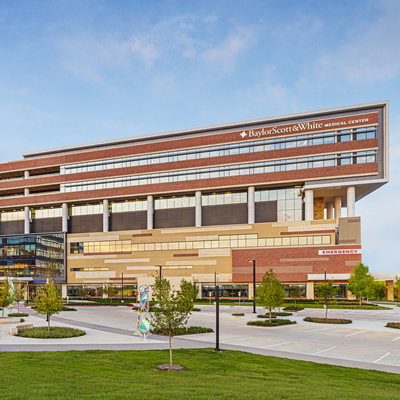
Baylor Scott & White Obstetrics & Gynecology - Frisco at PGA Parkway
16050 Everwell Ln Professional Pavilion I, Ste 200, Frisco, TX, 75033
- Monday: 8:00 am - 4:45 pm
- Tuesday: 8:00 am - 4:45 pm
- Wednesday: 8:00 am - 4:45 pm
- Thursday: 8:00 am - 4:45 pm
- Friday: 8:00 am - 4:30 pm
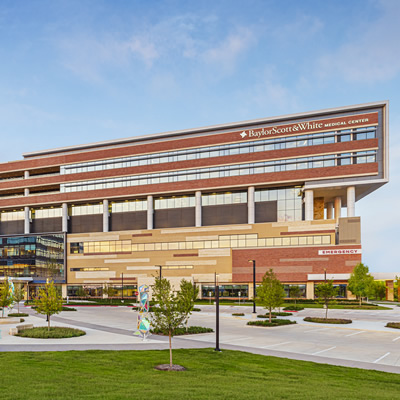
Baylor Scott & White Medical Center - Frisco at PGA Parkway
7600 Better Way , Frisco, TX, 75033

Baylor Scott & White Obstetrics & Gynecology - Frisco
4461 Coit Rd Ste 205, Frisco, TX, 75035
- Monday: 8:00 am - 4:45 pm
- Tuesday: 8:00 am - 4:45 pm
- Wednesday: 8:00 am - 4:45 pm
- Thursday: 8:00 am - 4:45 pm
- Friday: 8:00 am - 4:30 pm

Baylor Scott & White Medical Center - Centennial
12505 Lebanon Rd , Frisco, TX, 75035
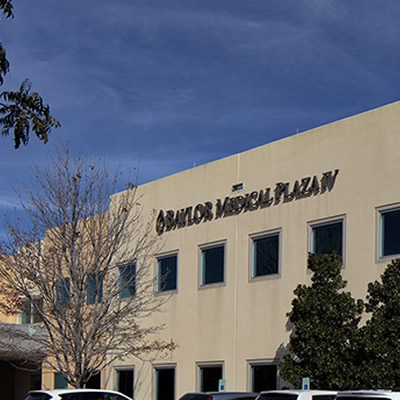
Baylor Scott & White Surgicare - Garland
530 Clara Barton Blvd Ste 100, Garland, TX, 75042
- Monday: 6:00 am - 5:00 pm
- Tuesday: 6:00 am - 5:00 pm
- Wednesday: 6:00 am - 5:00 pm
- Thursday: 6:00 am - 5:00 pm
- Friday: 6:00 am - 5:00 pm

Baylor Scott & White Medical Center - Frisco
5601 Warren Pkwy , Frisco, TX, 75034

Baylor Scott & White Medical Center - Plano
4700 Alliance Blvd , Plano, TX, 75093

Baylor Scott & White Park Lane OB/GYN Associates
9101 N Central Expy Ste 250, Dallas, TX, 75231
- Monday: 8:00 am - 4:30 pm
- Tuesday: 8:00 am - 4:30 pm
- Wednesday: 8:00 am - 4:30 pm
- Thursday: 8:00 am - 4:30 pm
- Friday: 8:00 am - 4:30 pm

Baylor Scott & White Surgicare - Dallas
4020 Junius St , Dallas, TX, 75246
- Monday: 6:00 am - 5:00 pm
- Tuesday: 6:00 am - 5:00 pm
- Wednesday: 6:00 am - 5:00 pm
- Thursday: 6:00 am - 5:00 pm
- Friday: 6:00 am - 5:00 pm
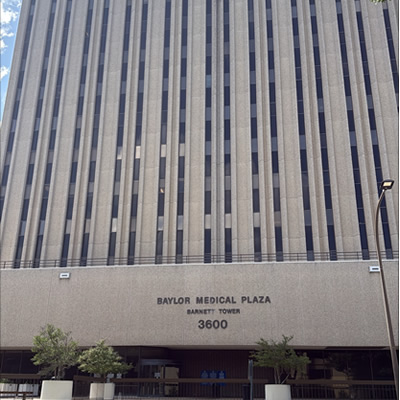
Baylor Scott & White Women's Health Group
3600 Gaston Ave Wadley Tower, Ste 1158, Dallas, TX, 75246
- Monday: 9:00 am - 5:00 pm
- Tuesday: 9:00 am - 5:00 pm
- Wednesday: 9:00 am - 5:00 pm
- Thursday: 9:00 am - 5:00 pm
- Friday: 9:00 am - 4:30 pm

Baylor University Medical Center, part of Baylor Scott & White Health
3500 Gaston Ave , Dallas, TX, 75246

Baylor Scott & White Medical Center - Irving
1901 N MacArthur Blvd , Irving, TX, 75061

Baylor Scott & White Medical Center - Grapevine
1650 W College St , Grapevine, TX, 76051

Baylor Scott & White Obstetrics & Gynecology - Grapevine
1631 Lancaster Dr Ste 370, Grapevine, TX, 76051
- Monday: 8:00 am - 5:00 pm
- Tuesday: 8:00 am - 5:00 pm
- Wednesday: 8:00 am - 5:00 pm
- Thursday: 8:00 am - 5:00 pm
- Friday: 8:00 am - 5:00 pm

Baylor Scott & White Obstetrics & Gynecology - Waxahachie
2460 N Interstate 35E Ste 225, Waxahachie, TX, 75165
- Monday: 9:00 am - 4:30 pm
- Tuesday: 9:00 am - 4:30 pm
- Wednesday: 9:00 am - 4:30 pm
- Thursday: 9:00 am - 4:30 pm
- Friday: 9:00 am - 4:30 pm

Baylor Scott & White Women’s Health Specialists - Waxahachie
2460 N Interstate 35E Ste 165, Waxahachie, TX, 75165
- Monday: 8:00 am - 5:00 pm
- Tuesday: 8:00 am - 5:00 pm
- Wednesday: 8:00 am - 5:00 pm
- Thursday: 8:00 am - 5:00 pm
- Friday: 8:00 am - 5:00 pm

Baylor Scott & White Medical Center - Waxahachie
2400 N Interstate 35E , Waxahachie, TX, 75165

Baylor Scott & White All Saints Medical Center - Fort Worth
1400 8th Ave , Fort Worth, TX, 76104

Baylor Scott & White Medical Center - Hillcrest
100 Hillcrest Medical Blvd , Waco, TX, 76712

Baylor Scott & White OB/GYN Clinic - Waco
120 Hillcrest Medical Blvd Office Building 2, Ste 201-2, Waco, TX, 76712
- Monday: 8:00 am - 5:00 pm
- Tuesday: 8:00 am - 5:00 pm
- Wednesday: 8:00 am - 5:00 pm
- Thursday: 8:00 am - 5:00 pm
- Friday: 8:00 am - 5:00 pm

Baylor Scott & White Clinic - College Station Rock Prairie
800 Scott and White Dr , College Station, TX, 77845
- Monday: 7:30 am - 5:00 pm
- Tuesday: 7:30 am - 5:00 pm
- Wednesday: 7:30 am - 5:00 pm
- Thursday: 7:30 am - 5:00 pm
- Friday: 7:30 am - 5:00 pm

Baylor Scott & White Medical Center - College Station
700 Scott and White Dr , College Station, TX, 77845
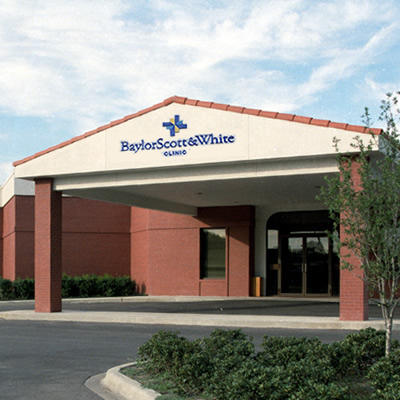
Baylor Scott & White Clinic - Santa Fe
1402 W Ave H , Temple, TX, 76504
- Monday: 8:00 am - 5:00 pm
- Tuesday: 8:00 am - 5:00 pm
- Wednesday: 8:00 am - 5:00 pm
- Thursday: 8:00 am - 5:00 pm
- Friday: 8:00 am - 5:00 pm
- Monday: 7:00 am - 4:30 pm
- Tuesday: 7:00 am - 4:30 pm
- Wednesday: 7:00 am - 4:30 pm
- Thursday: 7:00 am - 4:30 pm
- Friday: 7:00 am - 4:30 pm
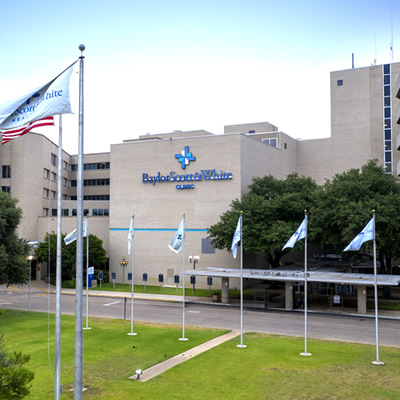
Baylor Scott & White Clinic - Temple
2401 S 31st St , Temple, TX, 76508
- Monday: 8:00 am - 5:00 pm
- Tuesday: 8:00 am - 5:00 pm
- Wednesday: 8:00 am - 5:00 pm
- Thursday: 8:00 am - 5:00 pm
- Friday: 8:00 am - 5:00 pm

Baylor Scott & White Medical Center - Temple
2401 S 31st St , Temple, TX, 76508
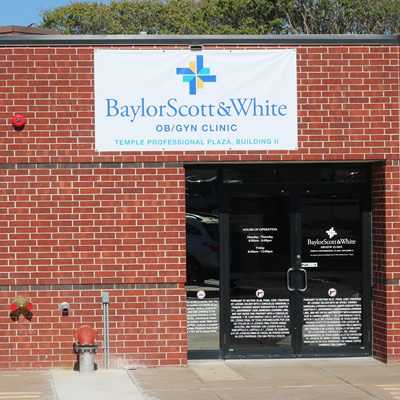
Baylor Scott & White Clinic - Temple Professional Plaza II
1713 SW H K Dodgen Loop Bldg II, Ste 100, Temple, TX, 76502
- Monday: 8:00 am - 6:00 pm
- Tuesday: 8:00 am - 6:00 pm
- Wednesday: 8:00 am - 6:00 pm
- Thursday: 8:00 am - 6:00 pm
- Friday: 8:00 am - 12:00 pm

Baylor Scott & White Medical Center - Brenham
700 Medical Pkwy , Brenham, TX, 77833
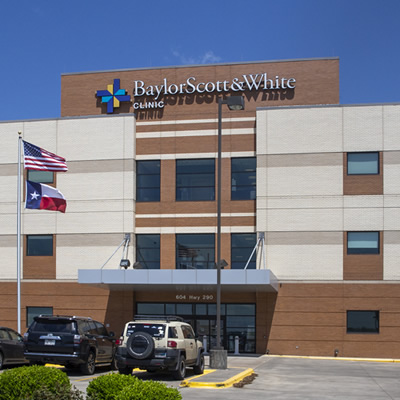
Baylor Scott & White Clinic - Brenham Hwy 290
604 US 290 , Brenham, TX, 77833
- Monday: 7:00 am - 5:00 pm
- Tuesday: 7:00 am - 5:00 pm
- Wednesday: 7:00 am - 5:00 pm
- Thursday: 7:00 am - 7:00 pm
- Friday: 7:00 am - 5:00 pm
- Saturday: 8:00 am - 12:00 pm

Baylor Scott & White Specialty Clinic - Salado
213 Millcreek Dr Ste 190, Salado, TX, 76571
- Monday: 8:00 am - 5:00 pm
- Tuesday: 8:00 am - 5:00 pm
- Wednesday: 8:00 am - 5:00 pm
- Thursday: 8:00 am - 5:00 pm
- Friday: 8:00 am - 5:00 pm

Baylor Scott & White Specialty Clinic - Harker Heights
907 Mountain Lion Cir , Harker Heights, TX, 76548
- Monday: 8:00 am - 5:00 pm
- Tuesday: 8:00 am - 5:00 pm
- Wednesday: 8:00 am - 5:00 pm
- Thursday: 8:00 am - 5:00 pm
- Friday: 8:00 am - 5:00 pm

Baylor Scott & White Specialty Clinic - Killeen Hemingway
2405 S Clear Creek Rd , Killeen, TX, 76549
- Monday: 8:00 am - 5:00 pm
- Tuesday: 8:00 am - 5:00 pm
- Wednesday: 8:00 am - 5:00 pm
- Thursday: 8:00 am - 5:00 pm
- Friday: 8:00 am - 5:00 pm
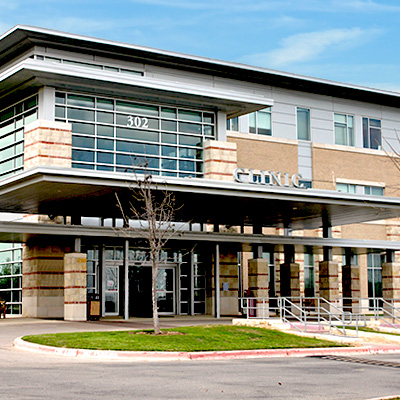
Baylor Scott & White Clinic - Round Rock 302 University
302 University Blvd , Round Rock, TX, 78665
- Monday: 8:00 am - 5:00 pm
- Tuesday: 8:00 am - 5:00 pm
- Wednesday: 8:00 am - 5:00 pm
- Thursday: 8:00 am - 5:00 pm
- Friday: 8:00 am - 5:00 pm

Baylor Scott & White Medical Center - Round Rock
300 University Blvd , Round Rock, TX, 78665
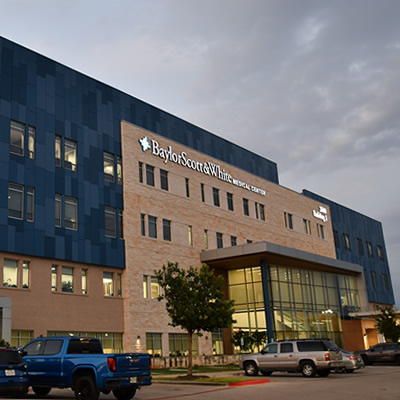
Baylor Scott & White Clinic - Pflugerville Medical Center (Building 1)
2600 E Pflugerville Pkwy Bldg 1, Ste 200, Pflugerville, TX, 78660
- Monday: 8:00 am - 5:00 pm
- Tuesday: 8:00 am - 5:00 pm
- Wednesday: 8:00 am - 5:00 pm
- Thursday: 8:00 am - 5:00 pm
- Friday: 8:00 am - 5:00 pm
- Monday: 7:30 am - 4:00 pm
- Tuesday: 7:30 am - 4:00 pm
- Wednesday: 7:30 am - 4:00 pm
- Thursday: 7:30 am - 4:00 pm
- Friday: 7:30 am - 4:00 pm
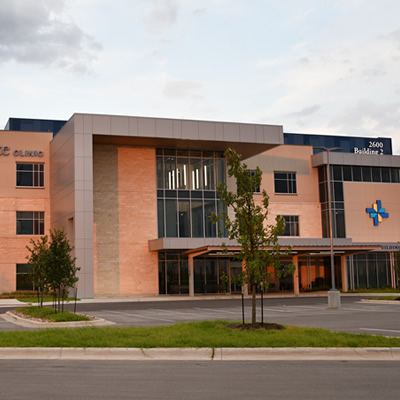
Baylor Scott & White Clinic - Pflugerville Medical Center Building 2
2600 E Pflugerville Pkwy Building 2, Pflugerville, TX, 78660
- Monday: 8:00 am - 5:00 pm
- Tuesday: 8:00 am - 5:00 pm
- Wednesday: 8:00 am - 5:00 pm
- Thursday: 8:00 am - 5:00 pm
- Friday: 8:00 am - 5:00 pm
- Monday: 8:00 am - 4:00 pm
- Tuesday: 8:00 am - 4:00 pm
- Wednesday: 8:00 am - 4:00 pm
- Thursday: 8:00 am - 4:00 pm
- Friday: 8:00 am - 4:00 pm
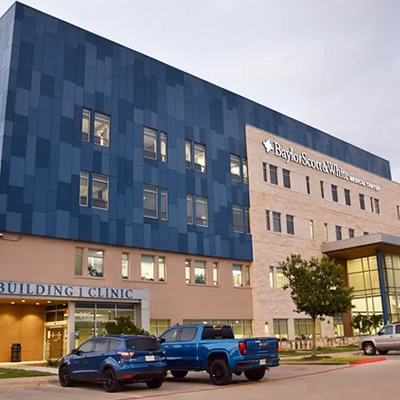
Baylor Scott & White Medical Center - Pflugerville (Building 1)
2600 E Pflugerville Pkwy Bldg 1, Ste 100, Pflugerville, TX, 78660
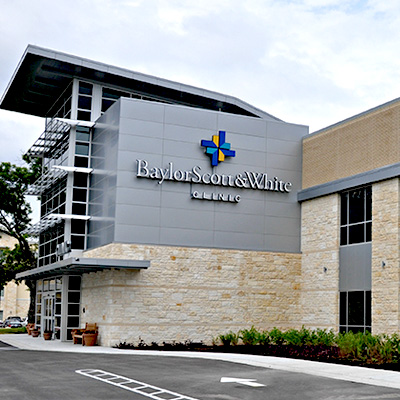
Baylor Scott & White Clinic - Cedar Park
910 E Whitestone Blvd , Cedar Park, TX, 78613
- Monday: 8:00 am - 5:00 pm
- Tuesday: 8:00 am - 5:00 pm
- Wednesday: 8:00 am - 5:00 pm
- Thursday: 8:00 am - 5:00 pm
- Friday: 8:00 am - 5:00 pm
- Monday: 7:00 am - 5:00 pm
- Tuesday: 7:00 am - 5:00 pm
- Wednesday: 7:00 am - 5:00 pm
- Thursday: 7:00 am - 5:00 pm
- Friday: 7:00 am - 5:00 pm
- Saturday: 9:00 am - 2:00 pm

Baylor Scott & White Clinic - Austin North Burnet
2608 Brockton Dr , Austin, TX, 78758
- Monday: 8:00 am - 5:00 pm
- Tuesday: 8:00 am - 5:00 pm
- Wednesday: 8:00 am - 5:00 pm
- Thursday: 8:00 am - 5:00 pm
- Friday: 8:00 am - 5:00 pm

Baylor Scott & White Medical Center - Austin
5245 W US Hwy 290 Service Rd , Austin, TX, 78735

Baylor Scott & White Medical Center - Lakeway
100 Medical Pkwy , Lakeway, TX, 78738
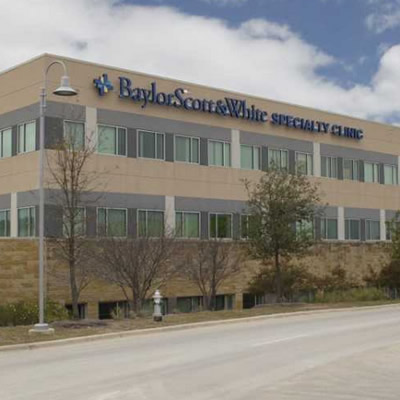
Baylor Scott & White Specialty Clinic - Lakeway
200 Medical Pkwy , Lakeway, TX, 78738
- Monday: 8:00 am - 5:00 pm
- Tuesday: 8:00 am - 5:00 pm
- Wednesday: 8:00 am - 5:00 pm
- Thursday: 8:00 am - 5:00 pm
- Friday: 8:00 am - 5:00 pm
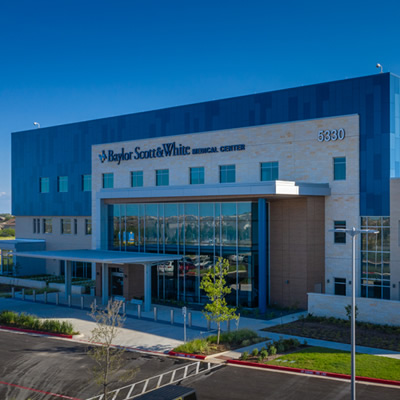
Baylor Scott & White Medical Center - Buda
5330 Overpass Rd , Buda, TX, 78610
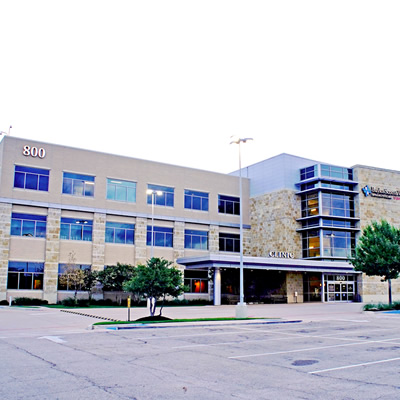
Baylor Scott & White Specialty Clinic - Marble Falls
800 W State Hwy 71 , Marble Falls, TX, 78654
- Monday: 8:00 am - 5:30 pm
- Tuesday: 8:00 am - 5:30 pm
- Wednesday: 8:00 am - 5:30 pm
- Thursday: 8:00 am - 5:30 pm
- Friday: 8:00 am - 5:30 pm

